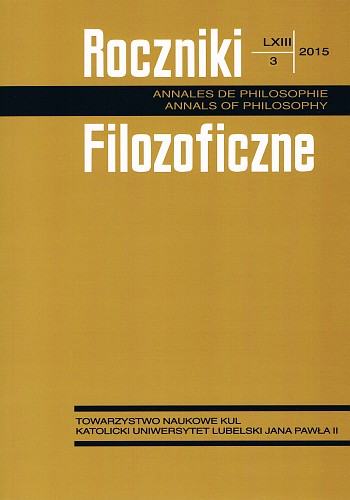Alexander Pruss on Love and the Meaningfulness of Sex
Alexander Pruss on Love and the Meaningfulness of Sex
Author(s): Christopher HamiltonSubject(s): Philosophy
Published by: Towarzystwo Naukowe KUL & Katolicki Uniwersytet Lubelski Jana Pawła II
Keywords: love;sex;moralization;teleology;
Summary/Abstract: In this essay I explore Alexander Pruss’ conceptions of love and sexual desire. I argue that he fails to provide a convincing account of either and that one reason for this is that he ignores far too much relevant material in philosophy and the arts that needs to be taken into account in a thorough investigation of such matters. I argue further that Pruss’ understanding of love and sex is highly moralized, meaning that his discussion is not at all sensitive to the actual human experience of these, but consistently falsifies them. I also argue that the teleology to which Pruss appeals in order to ground his claim that, in the sexual act, the bodies of the lovers are striving for reproduction, is implausible and, further, that, even were it not, we could not infer from such teleology the moral conclusions that Pruss wishes to extract from it.
Journal: Roczniki Filozoficzne
- Issue Year: 63/2015
- Issue No: 3
- Page Range: 55-74
- Page Count: 20
- Language: English

